Minneapolis Bird Control
Welcome to Bird Removal of Minneapolis! We specialize in the humane and effective resolution of human/bird conflicts in the Minneapolis metro region, and throughout Minnesota. Whether you have a single bird in a building, or need to prevent pigeon roosting (and bird droppings) on a large architectural project, we can solve your Minneapolis bird problem effectively and professionally. We install exclusion materials to keep birds away, and even provide pigeon trapping as a means of Minneapolis bird removal. We are not a pest control company, but rather wildlife, bat, and bird specialists only. Click on our Minneapolis Prices page to find out more about our prices for bird control work. You can also read the topics addressed on this website to learn more about how to resolve your specific bird conflict. We look forward to hearing from you.
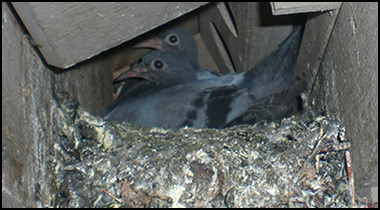
Minneapolis Bird Removal & Structural Repairs
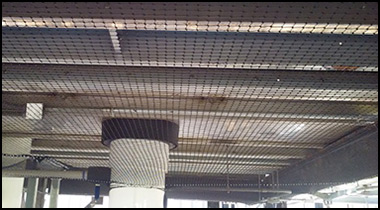
Exclusion Netting & Spike Installation

Minnesota Bird Trapping & More
Call 24/7 to discuss your Minneapolis bird problem.
Same-day or next-day appointments: 612-503-8440
Thorough inspection of your property.
Written estimates for bird project.
Fully Minnesota licensed and insured.
Structural bird exlusion netting.
Anti-roosting spikes and shock track.
Aurel dispersion and bird harrassment.
Bird dropping cleanup and sanitation services.
Bird damage repair and building exclusion.
Our Service Range - 612-503-8440
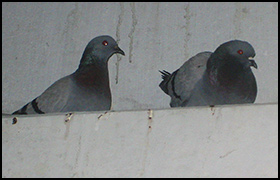
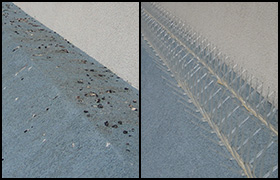
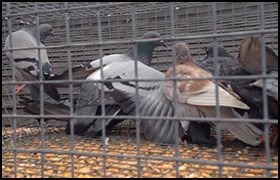
What is a pigeon’s natural diet?
Pigeons normally eat natural seeds, they may also eat insects, but in small amounts only. Their diet is composed of corn, cereals, wheat and others seeds. They may also eat fruits and green veggies such as lettuce, sprouted seeds, apple and grapes in their diet. The pigeon is a kind of bird that is so typical around the globe with a dove, these birds are somehow associated with each other and they live in almost the same places. The pigeon is quite larger than the 2 of them and they dove grows quite smaller in color and in size too. They call the baby pigeon squab.
Among the persuading fact is that the pigeon may have more than 40 taste buds, when compared to humans with a thousand. The food might not taste good with a few numbers of taste buds; however, the pigeons may keep eating it up. The pigeons are well adjusted to the human environment and they will live in buildings and in some cavities in the houses. They will more over take advantage of the food that is left by human beings. They will have big bodies and necks as well that are quite short on top of their thin bill.
The diet of the pigeon often varies when they are in the suburbs. Most of them eat whatever is available even if it means scavenging around for food. If you love pigeons, you can give some leftover food, they will surely love them and they will come back daily since they have learned that you are the best source of food. However, it is not normal for them to eat leftovers, if you will keep them, you must give them the food that they truly need. They are called granivores, because they primarily eat grains like wheat, millet, peas, barley and sunflower. They also eat cereals and seeds. They will eat every seed available at any time of the year, but some of them prefer to eat seeds in a specific period only.
At winter time, they want to eat more oil based seeds to keep them warm. During the molting season, they will start to alter their diet, this is also the time that they will mate and breed. It will be best to give them a mixture of all seeds, so that they will get all the nourishment that they need. The adult pair with a baby will need more variety of food to feed the baby. The baby must grow and it will need a lot of nutrients. Healthy pigeons normally eat a balanced meal and that contains fifty percent of grains and ten percent of sunflower seeds. The adult may eat more than thirty grams of food daily to keep its healthy condition.

